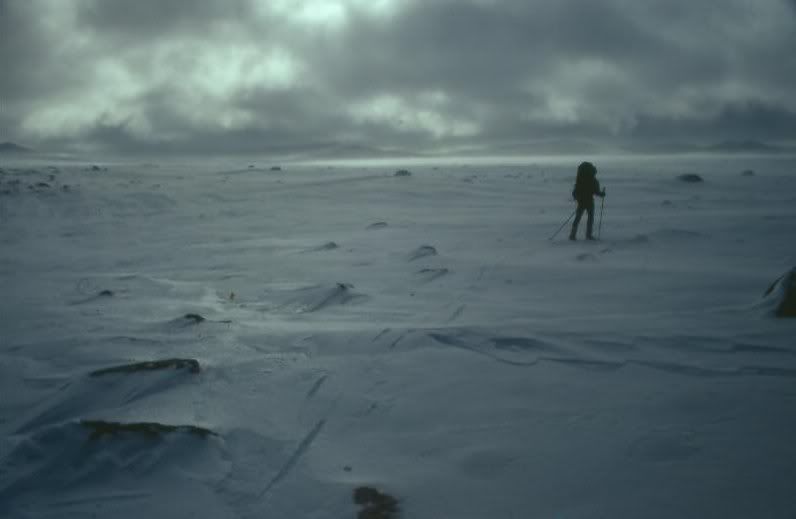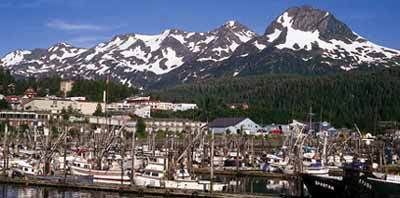Warmies: Stop Industry Because Ticks Are Spreading!
 I just shake my head and wonder how hysteria can become so entrenched that all reason dies.
I just shake my head and wonder how hysteria can become so entrenched that all reason dies.Take Sweden. The country is so darn cold and dark for so long, it has high alcoholism, drug addiction and suicide rates, but the Warmies choose to focus on this:
In Sweden, fewer winter days below 10 degrees and more summer days above 50 degrees have encouraged the northward movement of ticks, which has coincided with an increase in cases of tick-borne encephalitis since the 1980s.And then there's this nightmare of near-Biblical proportions:
In 1996, health authorities reported a human case of tick-borne encephalitis in the Czech village of Borova Lada, elevation 3,000 feet. Until then, the Ixodes rinicus tick, which carries the disease, had never been seen above 2,600 feet.Sell the SUV! Turn off the power! Shackle free enterprise!
Or maybe expand the market of tick medicine and make the manufacturers a bit richer. Or maybe, just maybe, stop worrying about ticks and discover that your local growing season just increased, the yield of your dairy herd is up, and your outlook on life is brighter, your desire to end it all considerably less.
These stories, courtesy of your Warmie lunatics at the LATimes, underscore the conflicting Warmie beliefs that the world needs human help to balance itself, and that humans are too stupid to adjust to the marginal effects of global warming. How can Warmies trust human ideas for how we should handle the macro if they don't trust humans to solve the micro?
The story is really hysterical in its hyperventilating about oysters. Here's the hand-wringing lead:

CORDOVA, ALASKA — Oysterman Jim Aguiar had never had to deal with the bacterium Vibrio parahaemolyticus in his 25 years working the frigid waters of Prince William Sound.OMG. Cruise ship passengers getting sick from oysters instead of any of a thousand other food poisoning opportunities round-the-clock gnoshing presents. This global warming stuff really is frightening!
The dangerous microbe infected seafood in warmer waters, like the Gulf of Mexico. Alaska was way too cold.
But the sound was gradually warming. By summer 2004, the temperature had risen just enough to poke above the crucial 59-degree mark. Cruise ship passengers who had eaten local oysters were soon coming down with diarrhea, cramping and vomiting — the first cases of Vibrio food poisoning in Alaska that anyone could remember.
"We were slapped from left field," said Aguiar, who shut down his oyster farm that year along with a few others.
As scientists later determined, the culprit was not just the bacterium, but the warming that allowed it to proliferate.
"This was probably the best example to date of how global climate change is changing the importation of infectious diseases," said Dr. Joe McLaughlin, acting chief of epidemiology at the Alaska Division of Public Health, who published a study on the outbreak.
And what of Cordova's oysters being "best example to date" of global warming and disease? Well, the LAT admits it was just a temporary condition -- but it buries the admission at the end of the story, 34 paragraphs and a page jump below the hand-wringing lead:
After Prince William Sound's Vibrio outbreak in 2004, the state required more oyster testing in some areas. In the last two years, there have been only four cases of Vibrio food poisoning.Well, Mr. Aguiar, you didn't see rapid change. You saw a temperature spike that just comes with living in a natural world. It came. It went. No big deal. Quit your whining and get back to our oysters.
Life in Aguiar's remote inlet has largely returned to the way it was before. This winter has been cold. Aguiar, a bear of a man with a riotous beard, huddled inside the houseboat for warmth recently as the temperature outside hovered around 20 degrees. The pale Northern Lights pulsed over the snow-laced Chugach Mountains, and skins of ice grew on the still water.
Come summer, Aguiar will start sending oyster samples to the state. When the temperature hits about 55 degrees, he'll drop his oyster baskets 60 or 100 feet in the water for about 10 days to clear out the bacteria.
It's a solution he can live with in a warming world.
"It's not all evil," he said. "I just don't like to see rapid change."
If worse came to worse, in a few dozen millenia, future generations of Aguiars still could be fishing in the village of Cordova. They may fish more often in their shirtsleeves, and they might have a few more tourists and sportsfishing boats to deal with ... so I suppose that's what the Warmies mean when they say climate change will end life as we know it.
Labels: Climate change, Global warming




<< Home